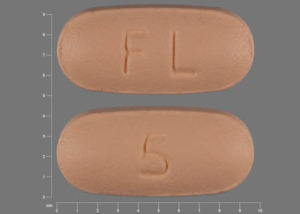Namenda Disease Interactions
There are 2 disease interactions with Namenda (memantine).
Memantine (applies to Namenda) hepatic impairment
Moderate Potential Hazard, Moderate plausibility. Applicable conditions: Liver Disease
Memantine should be used with caution in patients with severe hepatic impairment and a dosage reduction is recommended. No dosage adjustment is needed in patients with mild or moderate hepatic impairment.
References (1)
- (2003) "Product Information. Namenda (memantine)." Forest Pharmaceuticals
Memantine (applies to Namenda) renal impairment
Moderate Potential Hazard, Moderate plausibility. Applicable conditions: Renal Dysfunction, Urinary Tract Infection
Memantine renal clearance involves active tubular secretion moderated by pH dependent tubular reabsorption and conditions that raise urine pH may increase the plasma levels of memantine. Therapy with memantine should be used cautiously in patients with conditions that raise urine pH, such as renal tubular acidosis or severe infections of the urinary tract. Additionally, memantine should be used with caution in patients with severe renal impairment and a dosage reduction is recommended. No dosage adjustment is needed in patients with mild or moderate renal impairment.
References (1)
- (2003) "Product Information. Namenda (memantine)." Forest Pharmaceuticals
Switch to consumer interaction data
Namenda drug interactions
There are 43 drug interactions with Namenda (memantine).
Namenda alcohol/food interactions
There is 1 alcohol/food interaction with Namenda (memantine).
More about Namenda (memantine)
- Namenda consumer information
- Check interactions
- Compare alternatives
- Pricing & coupons
- Reviews (33)
- Drug images
- Side effects
- Dosage information
- During pregnancy
- Generic availability
- Support group
- Drug class: miscellaneous central nervous system agents
- En español
Related treatment guides
Drug Interaction Classification
| Highly clinically significant. Avoid combinations; the risk of the interaction outweighs the benefit. | |
| Moderately clinically significant. Usually avoid combinations; use it only under special circumstances. | |
| Minimally clinically significant. Minimize risk; assess risk and consider an alternative drug, take steps to circumvent the interaction risk and/or institute a monitoring plan. | |
| No interaction information available. |
See also:
Further information
Always consult your healthcare provider to ensure the information displayed on this page applies to your personal circumstances.


